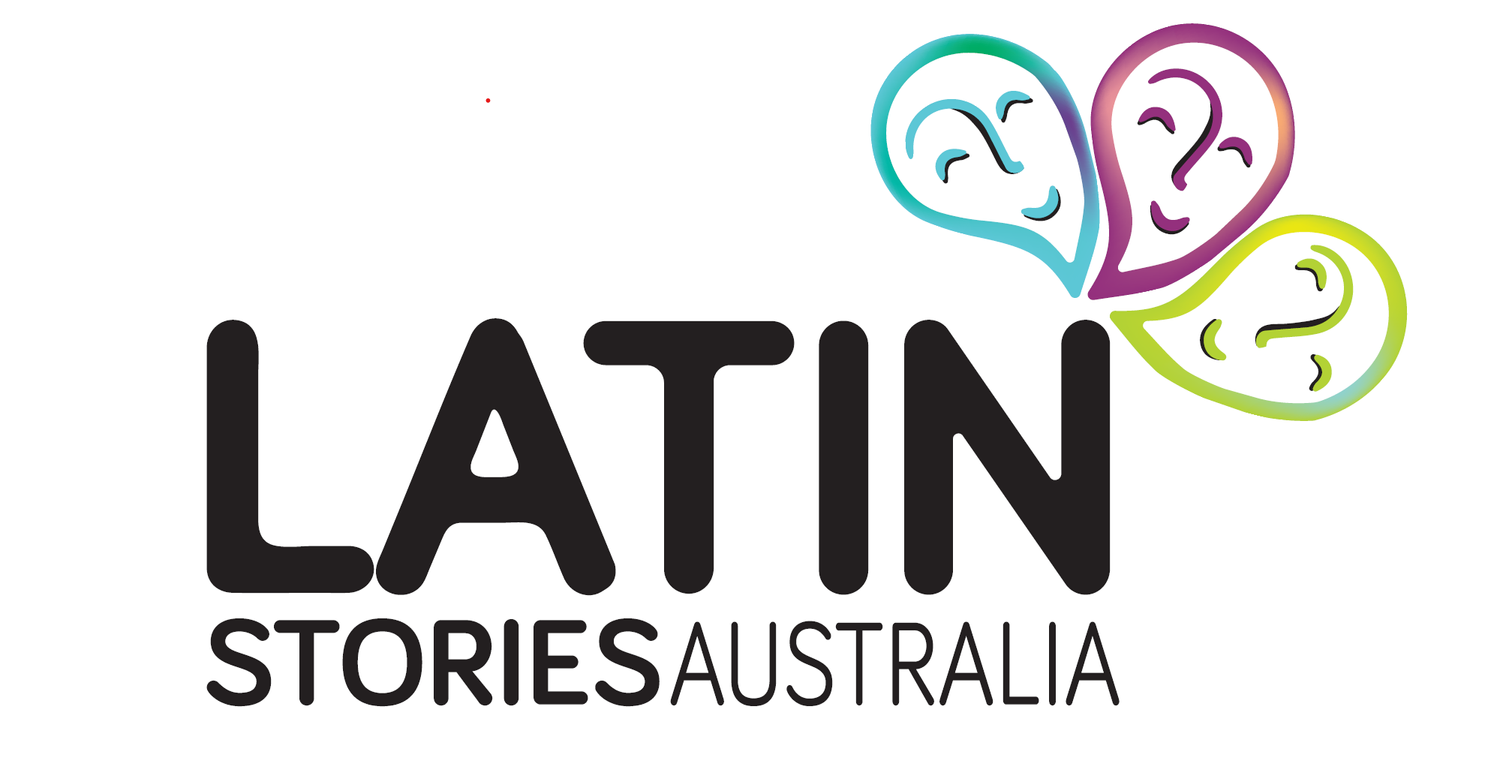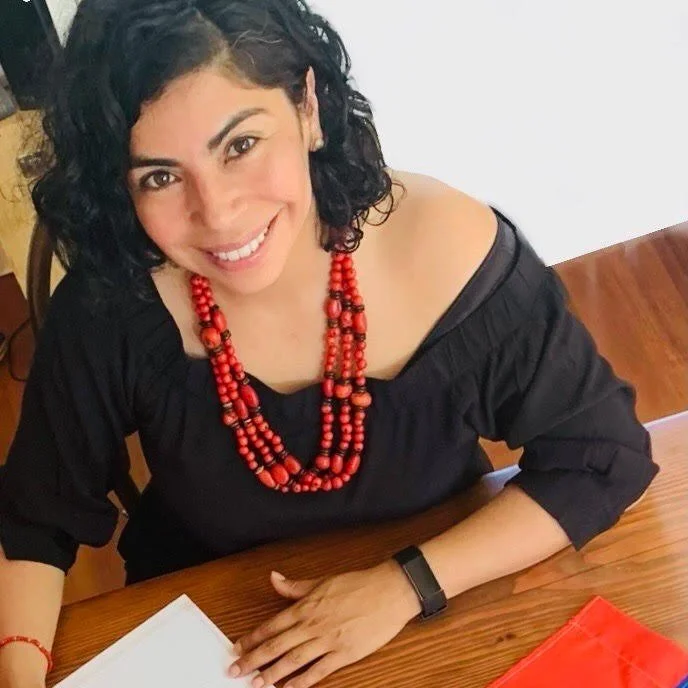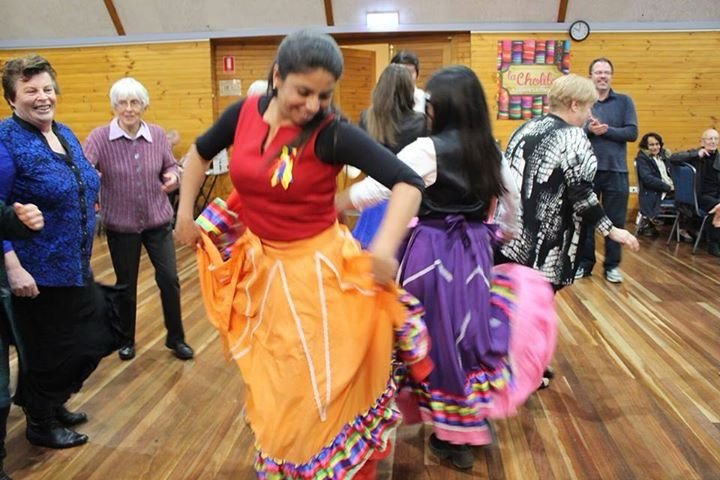Tatiana Astudillo
“When THE WIND TURNS into waves, surf the waves…”
Tatiana Astudillo
Occupation: Honorary Consul of Ecuador in Victoria
State of Residency: Victoria
Favourite place in Australia: The Grampians
Upon arrival: Surprised by the diversity of cultures, ethnicities and the passion to promote their cultural identity through their music, food and folklore.
Story edited by Lucy Coulson
Tatiana is the Honorary Consul of Ecuador in Victoria and Chair of GRULAC (Group of Latin American and Caribbean Countries), where she champions diplomatic, cultural and community engagement. A tireless advocate for social justice, she supports vulnerable groups through her work with the Salvation Army, addressing homelessness, domestic violence and mental health challenges. Tatiana also plays a vital role in promoting Ecuador’s identity, trade and academic partnerships across Victoria. From founding the Ecuadorians in Melbourne community to raising the Ecuadorian flag at Federation Square, her work reflects a deep commitment to solidarity, visibility and empowerment for Ecuadorians and the broader Latin American diaspora in Australia.
TELL US YOUR STORY
I was born in Melbourne, but my story is deeply rooted in migration. My parents arrived in 1974 during a wave of skilled migration — at the time, the Australian government even paid for their tickets and provided accommodation at a migrant hostel called Middway. That hostel became home to many Latin Americans, especially from Chile, Uruguay and Argentina, many fleeing political turmoil.
In 1978, my parents decided to return to Ecuador to be closer to family, so I grew up there. Because dual nationality didn’t exist at the time and my parents didn’t want me to give up my Australian citizenship, I was technically undocumented in Ecuador.
I came back to Australia in 1995 as a single mother to study. It was the hardest decision of my life — I had to leave my 10-month-old son behind, not knowing what to expect here. When I landed, I faced a harsh welcome. Despite my Australian passport, I didn’t speak a word of English and was taken into custody. I remember saying the only words I knew: “Me no English.” After hours of interrogation, being searched, and having my luggage ripped open, they finally let me go. All I heard was “sorry.”
Tatiana played soccer for Peru United (founded by Pablo and Angela Barra) for 6 years with whom they won their first club championship and were then elevated to 1st division.
Thankfully, my godparents Enrique and Flor Navarro were waiting for me at the airport. I broke into tears when Enrique approached me, and they gave me the sense of safety I desperately needed.
I enrolled in English classes, but unlike most migrants, I didn’t qualify for the 320 free hours of tuition. I had to pay for everything. I later completed a diploma in Travel and Tourism at Preston TAFE. In 1998, I returned to Ecuador to reunite with my son, who was now nearly four. After five months, I brought him back to Australia, where he became a citizen by descent.
I hoped to work in tourism, but as a single mum with no support network, I had to find work around school hours. I joined an agency called “Women at Work” and began cleaning houses and offices. During school holidays, my son would come with me — thankfully, my clients were understanding. We were later granted government housing and moved into a high-rise on Hoddle Street in Collingwood.
Telmo and Tatiana
Since then, life has taken many turns. I’ve lived all over Melbourne and have three beautiful children: Cristopher, Sebastian and Mikaela. In 2014, I met my wonderful partner, Telmo Languiller, during the first official Ecuadorian Independence Day celebration.
Professionally, I’ve worked for members of parliament at both the state and federal levels — a demanding but deeply rewarding experience. I took pride in my boss launching what is now known as the Globally Connected Strategy for Latin America in 2016, marking a significant step in strengthening Australia’s ties with the region
CHALLENGES
Starting from zero – I arrived in Melbourne at the age of 20, stepping into a country that was completely unfamiliar and very different from the one I had known. I had no direct family here, no command of the English language, and no financial resources to rely on. It was, without a doubt, an emotionally and materially challenging experience.
Despite those early struggles, I consider myself incredibly fortunate. I was embraced with warmth, affection and open arms by my adoptive Peruvian family, friends and especially by the Peruvian community in Melbourne. Their kindness, support and sense of solidarity helped me find my feet in those difficult early days, and I will always be deeply grateful for the way they welcomed me as one of their own.
Caught between two worlds – When I first arrived (or rather, returned) to Australia as a young woman, I carried with me the warmth, colour and expressiveness of my Ecuadorian upbringing. I was born in Melbourne, yes — but raised in Ecuador, immersed in a culture where affection is open, spontaneous, and woven into the fabric of daily life. So, stepping into Australian society (particularly the more reserved, Anglo-Celtic spaces) was not just different. It was confronting.
Being alone – The loneliness hit hard. Leaving behind my baby and my family in Ecuador was heartbreaking. It took time to adjust to the new culture, to learn how people connect here, and to rebuild a sense of belonging. Cultural differences and language barriers made friendships difficult in the beginning.
CONTRASTS AND SIMILARITIES
Tatiana performing at the Hispanic Society Ecuador tertulia 2023
Sterotypes - The “Latin woman” label here and in Latin America is often reduced to a shallow caricature—sexy, good-looking, passionate, a great dancer, and of course, an excellent cleaning lady. These tired tropes ave long silenced the depth, intelligence, and strength of so many of us. They dismiss our contributions and reduce our essence to entertainment or servitude. I’ve made it my mission to challenge that. I stand proudly for the new paradigm of the Latin American woman—fierce, educated, capable, and unstoppable. We are breaking down barriers in law, science, medicine, education, business, and the arts. And when we succeed, it’s not in spite of our culture—it’s because of it. Our heritage is not something to overcome; it’sa source of power, resilience, and beauty.
Public sector service - Most politicians here and in Latin America choose a path of service to its community. A chapter close to my heart was the time I spent working alongside state and federal Labor Members of Parliament. It was a deeply human, humbling privilege. It was the kind of work that reminded me every single day why I had chosen a path of service.I was granted a front-row seat to the real struggles people face—often in silence, often without a voice. My role allowed me to walk beside individuals and families during some of their darkest moments: mothers fleeing violence, families torn apart by immigration barriers, young people without a place to sleep, elderly migrants living in poverty, and individuals facing discrimination simply because of who they are—their gender, race, faith, or age.
Ecuadorian Christmas get together hosted by Tatiana December 2024.
Working within that space gave me an invaluable insight into both the power and the responsibility of public service. I learned how policy shapes lives, how systems either lift or fail people, and how crucial it is to keep compassion at the centre of our institutions. And, while I had no official title, no shiny nameplate, what I did have was purpose. That was more than enough. I will forever be grateful for the opportunity to serve—not as a politician, but as a human being standing in solidarity with others. It taught me something I carry to this day: that dignity is a right, not a privilege—and when we lift others, we all rise.
PIECE OF ADVICE
Ride the wave – When the wind turns into waves, “surf the wave,” they say. That’s when you hold your balance and ride the force that could either lift you or drown you. Life, like the ocean, doesn’t wait for anyone to be ready. You have to leap in and find your rhythm. You fall, yes. But you rise again. Surfing the wave is about courage, timing and trusting your own instincts. It’s about knowing when to fight and when to glide. And in my life, I’ve learned to surf every wave — of migration, motherhood, identity, and professional challenge — with heart and tenacity.
Show someone the ropes – When it comes to supporting someone new, simple things like how to catch the tram, where to buy cheap groceries or how to book a doctor’s appointment can make a huge difference. I always try to share the little things that once confused me too.
Point them in the right direction – A lot of new arrivals don’t know they have access to free or low-cost services, like mental health support, legal aid, or help with their studies. Helping them find these resources can be life-changing.
Tatiana with her amazing kids celebrating Ecuadorian Independence Day
IN THE NEXT FEW YEARS…
Tatiana envisions herself continuously learning and growing, both personally and professionally. She aims to deepen her knowledge, develop new skills and embrace challenges that push her beyond her comfort zone. She sees herself actively seeking opportunities that foster growth, building meaningful relationships and contributing positively to her community and workplace. Through ongoing education, hands-on experience and a strong commitment to self-improvement, Tatiana hopes to become a more capable, confident and well-rounded person.
Do you want to follow Tatiana’s journey? Connect with Tatiana on Linkedin
We invite you to you to take a moment to reflect after reading this inspiring story and invite you to support our work for the community with a tax deductible donation , following us on LinkedIn and Instagram or joining the Latin Stories Australia volunteer group.
With love and gratitude - The Latin Stories Australia team






